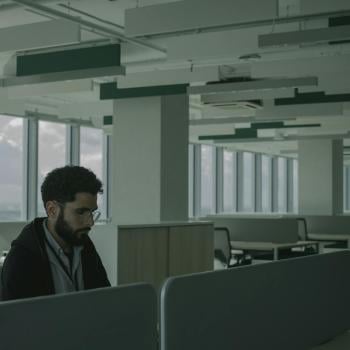
The rise of distributed work has transformed how organizations operate. Companies now enjoy the ability to access global talent, optimize real estate, and offer employees more flexibility. However, these benefits come with significant cultural challenges that demand careful management. As Michael Alicea, CHRO at Trellix, emphasized in a recent interview with me, organizations must be intentional about nurturing culture, especially with hybrid and remote work models becoming the norm. Alicea’s insights provide valuable lessons on how to align employees with company values, support managers in adapting to remote management, and ensure new hires feel connected and productive.
Accessing Talent and Managing Flexibility
Distributed work has removed geographical constraints, enabling companies to hire talent from anywhere. This broader talent pool is a clear benefit for technical industries like cybersecurity, where finding specialized skills locally can be limiting. Alicea noted that Trellix has been able to pursue talent in locations outside traditional tech hubs, paying market rates while reducing the need for costly offices in prime areas. The flexibility also appeals to employees balancing personal and professional demands, improving job satisfaction and retention.
But Alicea warns that these advantages can mask deeper cultural challenges. Employees working remotely lack organic touchpoints with colleagues, such as hallway conversations or spontaneous interactions that reinforce company values. Without these moments, organizations need to be proactive in embedding their culture in day-to-day operations. “You really have to take that extra step to make sure employees get the value system,” Alicea explained.
Onboarding and Building Connections Early
Alicea emphasizes that culture-building starts with onboarding. For Trellix, it’s essential that new employees receive more than just technical tools—they need to understand the company’s mission, values, and history. This process, which might once have happened naturally over lunch or through informal conversations, now requires formalized efforts. Trellix ensures that employees are fully “enabled” by shipping company devices pre-loaded with essential software, but it doesn’t stop there.
During the first three months, Trellix brings new hires together in person at a central location. Alicea noted that in-person interactions during these early stages build trust, which is critical for long-term collaboration. The company’s results back this up: 83% of Trellix’s interns either return for another round or transition into permanent roles. This success highlights the importance of planning in-person touchpoints for fostering a sense of belonging early on.
Managing Distributed Teams Requires New Skills
One of the most difficult aspects of distributed work is managing employees who aren’t in the same location. Managers accustomed to the “management by walking around” approach need new skills to stay connected with their teams. Alicea described how Trellix has evolved its management training programs to help leaders adjust to this shift.
New managers at Trellix go through a development program that not only covers traditional topics like motivation and performance management but also focuses on the logistics of managing remote teams. This includes learning how to coordinate meetings across time zones without disrupting work-life balance. In some cases, the team rotates meeting times to accommodate employees in different regions. Alicea stressed the importance of scheduling touchpoints in advance, explaining, “You just can’t say, ‘Let’s meet for 10 minutes.’ It’s very difficult to do that in this world.”
Experienced managers, who might intuitively understand how to guide employees, face the challenge of adapting these instincts into structured processes. Meanwhile, newer managers, who have only known the hybrid work model, may struggle with softer skills like motivation and team-building. As Alicea noted, traditional social events, like office birthday celebrations or happy hours, no longer happen naturally and require deliberate planning.
Cultivating Culture Through Mentorship and ERGs
Alicea pointed out that building connections across departments also requires intention. In a physical office, employees naturally engage with colleagues from different teams. However, remote work makes these cross-functional relationships harder to foster. To fill this gap, Trellix has implemented a mentorship program that pairs employees with mentors outside their immediate teams. This provides employees with opportunities to gain broader insights and form meaningful connections across the company.
Employee Resource Groups (ERGs) also play a vital role in reinforcing culture. ERGs at Trellix create affinity spaces where employees with shared interests or identities can connect. These groups serve as informal communication channels and foster a sense of belonging, particularly for remote employees who might otherwise feel isolated. Alicea highlighted that ERGs have become “essential connection points” and help Trellix distribute important information across the organization.
Balancing Flexibility with Compliance and Structure
While distributed work offers employees more flexibility, it introduces new compliance challenges for companies. Alicea shared an example of how international employees might wish to work in multiple countries throughout the year, creating a web of tax and legal complexities. For instance, an employee spending summers in Hungary and winters in Spain could trigger payroll obligations and visa issues in both countries. “Employees figure out a way around that,” Alicea said, underscoring how companies need to be prepared for these unexpected challenges.
In response, Trellix emphasizes the importance of scheduled check-ins to keep performance management on track. Regular meetings allow managers to address operational needs and discuss employee development, ensuring that everyone stays aligned despite working from different locations. Alicea stressed that performance discussions, now more than ever, must be deliberate: “You have to plan it out and make sure that the performance management component is pretty strong.”
The Future of Distributed Work: A Hybrid World
Looking ahead, Alicea believes that distributed work is here to stay, though the pendulum may swing slightly toward more in-office time, especially for younger employees. He observed that early-career professionals often crave the social aspects of office life and benefit from learning through in-person collaboration. At the same time, companies are reimagining their office spaces, focusing more on client-facing areas or shared workspaces for occasional team gatherings.
Alicea envisions a future where companies strike a careful balance between flexibility and structure. Hybrid models will continue to dominate, but success will depend on how intentionally organizations foster culture and connection. Trellix’s experience shows that distributed work isn’t just about technology—it’s about being mindful of how employees connect, collaborate, and grow within the organization.
The shift to distributed work offers undeniable advantages, from access to global talent to greater flexibility. However, as Michael Alicea emphasized, these benefits come with new challenges, particularly around culture. Companies need to be proactive in onboarding, intentional in managing distributed teams, and thoughtful in fostering cross-functional relationships. By investing in mentorship programs, ERGs, and in-person touchpoints, organizations can build a culture that thrives in a hybrid world. Ultimately, success in distributed work requires more than just good technology—it demands mindfulness and deliberate planning at every stage of the employee lifecycle.
Key Take-Away
To thrive in distributed work, companies must prioritize culture, onboarding, and remote team support, ensuring strong connections, clear communication, and intentional planning for long-term success in hybrid environments…>Click to tweet
Image credit: Ivan Samkov/pexels
Dr. Gleb Tsipursky was lauded as “Office Whisperer” and “Hybrid Expert” by The New York Times for helping leaders use hybrid work to improve retention and productivity while cutting costs. He serves as the CEO of the boutique future-of-work consultancy Disaster Avoidance Experts. Dr. Gleb wrote the first book on returning to the office and leading hybrid teams after the pandemic, his best-seller Returning to the Office and Leading Hybrid and Remote Teams: A Manual on Benchmarking to Best Practices for Competitive Advantage (Intentional Insights, 2021). He authored seven books in total, and is best know for his global bestseller, Never Go With Your Gut: How Pioneering Leaders Make the Best Decisions and Avoid Business Disasters (Career Press, 2019). His cutting-edge thought leadership was featured in over 650 articles and 550 interviews in Harvard Business Review, Forbes, Inc. Magazine, USA Today, CBS News, Fox News, Time, Business Insider, Fortune, and elsewhere. His writing was translated into Chinese, Korean, German, Russian, Polish, Spanish, French, and other languages. His expertise comes from over 20 years of consulting, coaching, and speaking and training for Fortune 500 companies from Aflac to Xerox. It also comes from over 15 years in academia as a behavioral scientist, with 8 years as a lecturer at UNC-Chapel Hill and 7 years as a professor at Ohio State. A proud Ukrainian American, Dr. Gleb lives in Columbus, Ohio. In his free time, he makes sure to spend abundant quality time with his wife to avoid his personal life turning into a disaster. Contact him at Gleb[at]DisasterAvoidanceExperts[dot]com, follow him on LinkedIn @dr-gleb-tsipursky, Twitter @gleb_tsipursky, Instagram @dr_gleb_tsipursky, Facebook @DrGlebTsipursky, Medium @dr_gleb_tsipursky, YouTube, and RSS, and get a free copy of the Assessment on Dangerous Judgment Errors in the Workplace by signing up for the free Wise Decision Maker Course at https://disasteravoidanceexperts.com/newsletter/.













